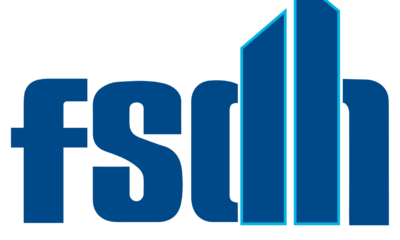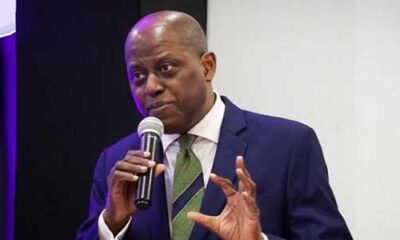Naira to dollar exchange rate in 2020 declined by N73 from N306 Central Bank of Nigeria sold it in the beginning of the year to N379 and N386 on the investors and exporters forex window.
The Naira to dollar exchange rate in 2020 has been marred by a series of economic uncertainties and weak macro fundamentals caused by the COVID-19 pandemic.
At the beginning of the year, the official Central Bank of Nigeria’s naira to dollar exchange rate stood at N306 to a US dollar, while on the parallel market popularly known as the black market, the local currency was exchanged between N350 to N360 per US dollar.
On the investors and exporters’ foreign exchange window instituted by the central bank to mirror a free market, the naira was exchanged at N325 to a United State dollar.
However, unclear economic direction amid a 50 percent increase in Value Added Tax from 5 percent to 7.5 percent and border closure hurt the Nigerian economic outlook and plunged investors’ confidence in the economy even before COVID-19 outbreak.
This weak sentiment metamorphosed into broader economic decline when COVID-19 broke out in the country on February 27 2020 as investors that were doubting President Buhari economic path see no reason to wait any longer or believe Nigeria has what it takes, in terms of the health system, to contain an impending health catastrophe.
The surged in demand for US dollar by those looking to move their funds out of the country compelled Governor Godwin Emefiele led central bank to adjust the Nigerian Naira foreign exchange rate from N306 to a US dollar to N360 in order to discourage capital flight while simultaneously sustain dwindling foreign reserves.
But with global oil prices plunging to as low as $15 per barrel, below Nigeria’s $17 per barrel cost of production and demand for the commodity, especially Nigeria’s crude oil at almost zero during the peak of COVID-19, foreign investors were willing to lose N54 per US dollar to exit the Nigerian market.
According to a JPMorgan report, central bank forex backlog was over $5 billion, yet foreign reserves continues to drop. Left with little to no choice, the federal government approached the International Monetary Fund (IMF) for $3.4 billion financial assistance while the apex bank devalued the Naira again to the currency $379 to a US dollar and N386 on the investors and exporters window.
Despite the negative impacts of COVID-19 on the Nigerian people and the broad-based decline in economic activities that saw the nation’s Gross Domestic Product (GDP) contracting by 6.10 percent in the second quarter of the year and the unemployment rising as high as 27.1 percent or 21.8 million people in an import-dependent economy, the apex bank did not just devalue the Naira twice, the Federal Government raised electricity tariffs and remove subsidy in an economy with very weak consumer spending.
With the series of economic uncertainties, investors in forex forward market in London started offering Naira future contracts for N545, saying the apex bank no longer have the resource to support the Naira given the current global situation.
True to their words, Naira to Dollar exchange rate in 2020 plunged to N480 on the black market amid persistent forex scarcity before recently moderating to N467 when the central bank resumed forex sales to the bureau de change operators across the country.
Also, with the economy expected to plunge into an economic recession for the second time in four years in the third quarter of 2020, the Naira to Dollar exchange rate is expected to suffer even further in 2020.


 Naira4 weeks ago
Naira4 weeks ago


 News3 weeks ago
News3 weeks ago
 Education4 weeks ago
Education4 weeks ago


 Social Media4 weeks ago
Social Media4 weeks ago
 Economy4 weeks ago
Economy4 weeks ago
 Investment4 weeks ago
Investment4 weeks ago


 Dividends4 weeks ago
Dividends4 weeks ago




 Business3 weeks ago
Business3 weeks ago

















